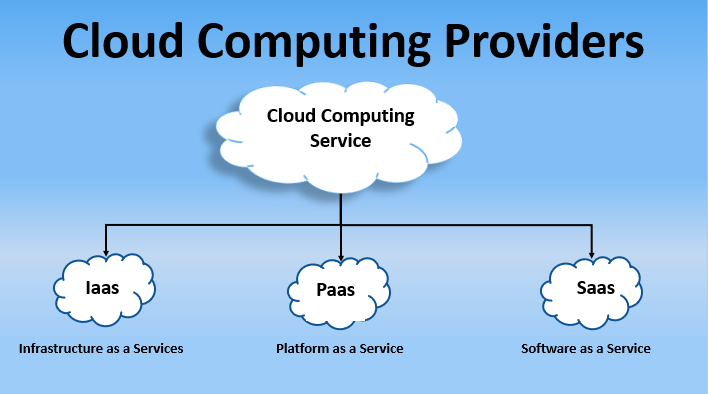Streamline IT Monitoring With Cloud Services
Cloud solutions have actually emerged as a sensible service for organizations looking to improve performance, minimize prices, and enhance total IT performance. Just how exactly do these cloud solutions revolutionize typical IT administration techniques? Allow's discover the transformative effect of leveraging cloud services on IT procedures and the crucial considerations for effective implementation.
Advantages of Cloud Provider

Additionally, cloud solutions allow companies to improve their functional effectiveness by enhancing processes and decreasing the moment and sources required for handling IT framework. With cloud services, businesses can automate regular jobs, such as software application updates and data backups, liberating IT groups to concentrate on even more calculated efforts that drive service worth.

Improved Scalability and Adaptability
Cloud solutions offer organizations with unparalleled scalability and versatility in managing their IT sources efficiently. Scalability is a critical feature of cloud solutions that allows firms to quickly change their IT resources based upon demand. With cloud solutions, services can rapidly scale up or down their computing sources, storage ability, and network transmission capacity to satisfy transforming demands without the need for substantial in advance investments in equipment. This versatility makes it possible for companies to adapt to rising and fall workloads, seasonal demands, or unexpected growth without experiencing downtime or performance problems.
Additionally, cloud solutions supply the versatility to select from a variety of solution designs, such as Facilities as a Service (IaaS), System as a Solution (PaaS), or Software as a Solution (SaaS), based on the certain requirements of the service. The enhanced scalability and flexibility provided by cloud services equip services to enhance their IT procedures and remain active in today's vibrant market atmosphere.

Cost-Effectiveness and Savings
With the ability to successfully allot sources based on demand, companies utilizing cloud solutions can harness considerable cost-effectiveness and realize substantial savings in their IT procedures. In addition, cloud solutions lessen maintenance costs by shifting the duty of equipment maintenance and software application updates to the solution supplier. In general, the cost-effectiveness and cost savings accomplished with cloud solutions make it possible for organizations to reallocate resources towards technology and development campaigns.
Improved Protection and Conformity
Enhancing the overall safety and security pose and ensuring regulatory compliance are paramount considerations for businesses leveraging cloud services in their IT management approaches. Cloud provider use advanced safety and security steps, such as data security, multi-factor verification, and automated back-ups, which can boost a business's safety structure. These providers additionally follow stringent governing requirements, such as GDPR, HIPAA, and PCI DSS, aiding services fulfill compliance requirements much more effectively.
Applying cloud solutions can improve protection by providing centralized control over gain access to monitoring, surveillance, and data protection. This centralized technique streamlines security management and guarantees regular application of protection policies across the organization. In addition, cloud services commonly offer real-time safety updates and spots, decreasing the danger of susceptabilities and potential breaches.
Finest Practices for Cloud Implementation
Carrying out cloud solutions successfully calls for a structured strategy that incorporates complete preparation and attentive execution. To guarantee a smooth change to the cloud, companies ought to start by carrying out a thorough analysis of their existing IT facilities and determining which work appropriate for movement. It is important to establish clear purposes and specify key performance indicators (KPIs) to measure the success of the cloud application.
One of the very best techniques for cloud application is to meticulously choose a cloud company that aligns with the company's requirements in regards to protection, conformity, cost-effectiveness, visit the website and scalability. In addition, developing a thorough migration plan that details the actions involved, timelines, and obligations is vital for a successful application.
On a regular basis keeping track of and maximizing cloud resources to make sure reliable efficiency and cost monitoring is one more vital element of cloud implementation best practices. Continual analysis of the cloud setting and remaining educated regarding updates and new functions provided by the cloud supplier can even more boost the organization's cloud strategy. By adhering to these best methods, organizations can simplify their IT administration and make best use of the benefits of cloud solutions.
Final Thought
Finally, leveraging cloud services for IT monitoring offers numerous benefits, consisting of boosted scalability, cost-effectiveness, boosted security, and compliance. By following best practices for cloud execution, companies can simplify their IT procedures, automate regular jobs, and enhance resource allowance. This structured technique allows IT groups to basics concentrate on tactical initiatives and development, inevitably supplying value to the organization. Generally, cloud solutions enhance operational efficiency and dexterity in managing IT infrastructure.
Additionally, cloud solutions provide the adaptability to pick from a variety of service versions, such as Infrastructure as a Solution (IaaS), Platform as a Solution (PaaS), or Software Program as a Service (SaaS), based on the certain requirements of the business. In addition, cloud solutions minimize upkeep expenses by shifting the duty of equipment upkeep and software updates to the solution supplier.Enhancing the overall protection stance and making certain governing compliance are paramount factors to consider for companies leveraging cloud services in their IT administration techniques.Frequently checking and enhancing cloud sources to make sure efficient efficiency and cost monitoring is one more vital facet of cloud application ideal methods. Continual assessment of the cloud environment and remaining notified regarding updates and new attributes supplied by the cloud provider helpful resources can better improve the organization's cloud approach.
 Alfonso Ribeiro Then & Now!
Alfonso Ribeiro Then & Now! Keshia Knight Pulliam Then & Now!
Keshia Knight Pulliam Then & Now! Barbara Eden Then & Now!
Barbara Eden Then & Now! Jaclyn Smith Then & Now!
Jaclyn Smith Then & Now! Katey Sagal Then & Now!
Katey Sagal Then & Now!